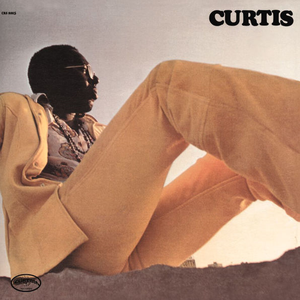Published on Jan 12, 2000
In light of his passing away last month, I thought that in
addition to this web site’s brief “In Memoriam” statement, it was
only appropriate that we review one of Curtis Mayfield’s albums.
First instincts told me to go with
Superfly, easily his best-known work and certainly an album
no soul afficionado should be without, but upon further reflection,
since “The Daily Vault” is all about musically digging deeper than
the obvious, I decided to take a crack at the preceding 1970
release, simply titled
Curtis.
Though not as immediately appealing and groove-filled as
Superfly,
Curtis is important because it was one of the first soul /
R&B recordings to go beyond the collection-of-songs concept
into an album concept. It did take the public a little time to
accept this idea, sadly but most likely due to ingrained racial
prejudices; Isaac Hayes had done his darnedest to break down that
barrier a year before with his classic
Hot Buttered Soul LP, containing four lengthy opuses that
were some of the first musical glimmers of the ambitious ’70s. But
Mayfield followed closely after with this album, which left almost
all of his ’60s work with the Impressions in the dust, and also
foreshadowed
Superfly and nearly all ’70s funk, years ahead of its
time.
Incidentally, though most of its tracks are available on various
greatest hits-type anthologies or box sets,
Curtis still hasn’t been reissued on a major label yet,
making it a bit of a challenge to find. Inexcusable. But let’s get
to the songs.
The opening “(Don’t Worry) If There’s Hell Below We’re All Going
to Go” begins with an echoey call to arms – “Niggas! Whiteys!
Jews!” – like much “message music” that was going on at the time,
but when the irresistible fuzz bass line pipes in, and then
suddenly an aural feast of strings, horns and pulsating polyrhythms
joins the bass, you know that Mayfield is onto something new. What
follows is message music to end all message music; an ominous
reality check on the state of the world, where no one is innocent.
Next, and in stark contrast, is “The Other Side Of Town,” an eerie
slow jam from the ghetto that begins with a lush harp and some of
the scariest drumrolls ever. No gangsta rap can top this.
But after that one-two punch,
Curtis is actually an optimstic album for the most part. The
centerpiece is the fairly well-known “Move On Up,” which offers
some unusual messages, at least for 1970, about parents being able
to understand children, and also one-ups “If There’s Hell Below”
with an even more grandiose multi-layered production.
Remember how extended dance songs used to be given “Part 1” and
“Part 2” titles, where part 1 would be the actual song and part 2
would be the long, repetitive instrumental coda? Well, this is
where it all started. There was no such thing as a 12 inch single
in 1970, but all the elements of one are here – except that the
equivalent of “Part 2” on “Move On Up” is actually an excellent
horn solo, which envelops your attention so much that you simply
don’t realize you’ve been hearing the same set of two chords for
eight minutes.
Let us not forget the ballads. “The Makings Of You,” in addition
to being an excellent choice for any Valentine’s Day mix, is
extremely complex for a simple love song, sung with such feeling
you’re almost moved to tears, and never really resolving on one
chord, adding a jazz sensibility you don’t often see in modern
R&B. “Give It Up” is less ambitious but almost as gripping, a
timeless torch song. And the
whisper-to-a-scream-and-back-to-a-whisper “We People Who Are Darker
Than Blue” is like nothing else recorded before or since, a moving
plea for racial unity and awareness.
If there’s one quibble I have with this album, and this really
is nitpicking, it’s that there’s almost too much going on. It’s as
if Mayfield was so fascinated with all these new sounds and
combinations of sounds he was creating that he had to cram as many
of them onto the record as he could. It works fine on the
faster-paced numbers like “Move On Up,” similar to most of what
would later come on
Superfly, but on “Give It Up” and “The Other Side Of Town”
for example, one wishes that the dozen or so musicians could just
tone it down a bit and let Curtis’s falsetto, the most mesmerizing
of its kind, take center stage. Only “The Makings Of You” shows the
proper restraint, and that’s why it’s so good.
But the amazing thing is that in spite of the
everything-but-the-kitchen-sink production that graces much of this
album, it’s really the singing that stands out. Mayfield is often
overlooked when it comes to naming the great voices of R&B, but
his ability to create such varying moods and sound so wrapped up in
his songs was duplicated by very few – Marvin Gaye definitely,
Stevie Wonder maybe, Al Green perhaps, and that’s mighty good
company. Add that to the wild, adventurous music, and you’ve got
yourself one heck of an album. May he live forever in our CD
players.
